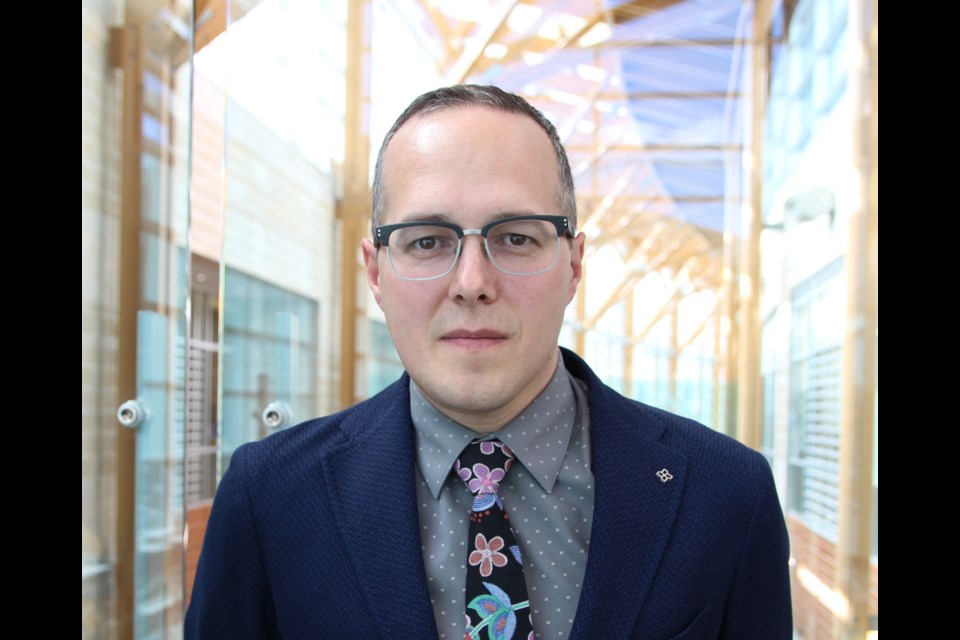THUNDER BAY — Researchers at Lakehead University have secured nearly $1.4 million in funding through the Canadian Institutes of Health Research (CIHR).
The grants will support research into Indigenous youth mental health services, the impact of the pandemic on Black and Indigenous communities, and prostate cancer diagnosis.
Andrew P. Dean, the university’s vice-president of research and innovation, said the funding demonstrated the excellence and real-world impacts of the school’s research work.
“Lakehead University continues to be a leader in health science research in Northwestern Ontario,” he said. “As these projects demonstrate, we have amazing diversity and extremely applied research in many important areas in health sciences.”
Psychology professor Christopher Mushquash and his team will receive $250,000 to develop best practices for “context-specific and culturally relevant” Indigenous youth mental health services.
Mushquash is a clinical psychologist and a Canada Research Chair in Indigenous Mental Health and Addiction, a professor at NOSM University, vice-president of research at the Thunder Bay Regional Health Sciences Centre, and chief scientist at the Thunder Bay Regional Health Research Institute.
His team will conduct research over the course of a year on behalf of Access Open Minds, a Canadian youth mental health network.
The project includes six community partners: Elsipogtog First Nation (NB), Eskasoni First Nation (NS), Sturgeon Lake First Nation (Sask.), Puvirnituq (Nunavik, Que.), the Cree Nation of Mistissini (Que.), and Ulukhaktok (Inuvialuit Settlement Region, NWT).
“We will be guided by a community participatory approach grounded in Indigenous knowledge and approaches as guided by the AOM Indigenous Council,” said Mushquash in a statement provided by the university. “We will employ multiple methods to meet the research objectives including a case study approach to generate a narrative case study for each of the six Indigenous sites.”
Health sciences associate professor Anna Kone will receive over $293,000 to assess the impacts of the pandemic on people from Black and Indigenous communities who have chronic diseases, in a research project lasting over two years.
“In the midst of the pandemic, there were reductions in service offerings to respond to the crisis,” she said. “Inevitably, this impacted the care of those already having difficulty navigating the system for their ongoing health needs, including patients with cancer, diabetes, [and] dementia.”
The project will provide recommendations for policy responses and care approaches.
The study will employ surveys and interviews in Northwestern Ontario communities, including rural areas and Indigenous communities, as well as Black communities in the Greater Toronto Area.
Lakehead Indigenous learning professor Lana Ray and health sciences professor Elaine Wiersma will assist in the study, along with researchers from the University of Toronto and several Indigenous and Black community-based organizations, including the Sioux Lookout First Nations Health Authority.
Alla Reznik, meanwhile, a Lakehead physics professor and scientist at the Thunder Bay Regional Health Research Institute, will receive nearly $740,000 to explore a new way to diagnose prostate cancer in men.
She’s also a Canada Research Chair in the physics of radiation medical imaging.
“The goal of this research is to improve prostate cancer diagnosis by accurately establishing where in the broad spectrum of this disease a particular tumour lies, and to identify its true aggressiveness,” said Reznik.
She and her team plan to achieve that goal over five years by developing a next-generation imaging system based on a combination of prostate-targeted Positron Emission Tomography and transrectal ultrasound imaging.
“Our research will advance the field of prostate cancer detection beyond the current standard of care and will result in an improvement of prostate cancer survival — yielding significant clinical benefits,” she said.
Her co-applicants include researchers from the London Regional Cancer Program and the University of Western Ontario. Radialis Medical is the partner organization.
Lakehead received nearly $2 million in assistance from the CIHR’s Research Support Fund last year to support the indirect costs of research, which includes costs for supporting the management of intellectual property, research and administration, ethics and regulatory compliance, research resources, and research facilities.
